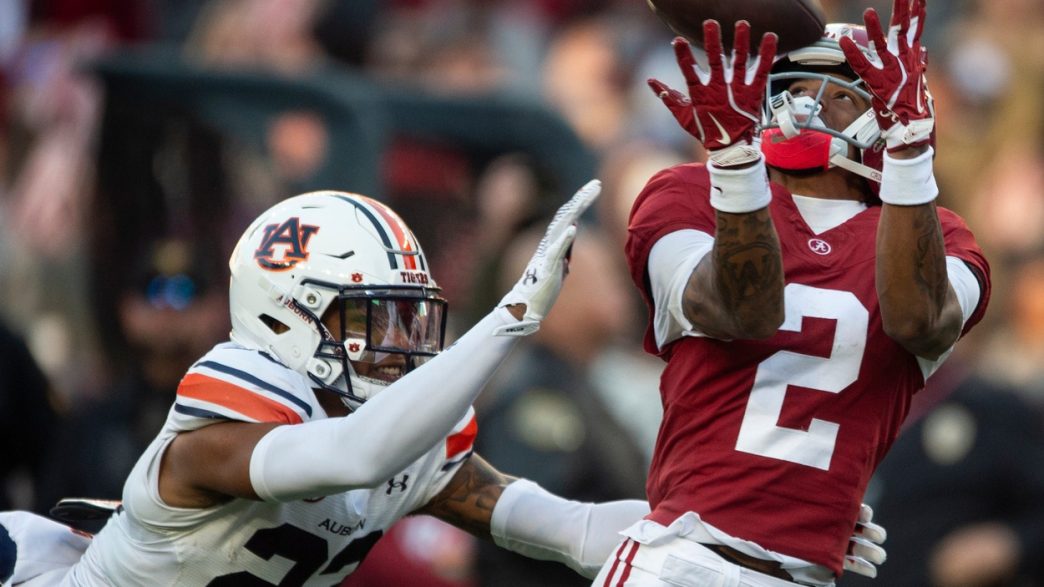As the SEC spring meetings convened at the Sandestin Beach Hilton, one can only hope that prominent figures like Greg Byrne and John Cohen were vocal about their concerns. Kalen DeBoer and Hugh Freeze might have raised their fists in solidarity, drawing attention to a pressing issue that needs more than just a passing discussion. It’s about time Alabama and Auburn allies made their voices heard loud and clear, especially regarding a playoff proposal that could change the landscape of college football in ways that should raise eyebrows across the South.
The proposed 4-4-2-2-1-3 format—where the SEC and Big Ten each get four playoff spots, while the ACC and Big 12 snag two each—has drawn rightful scrutiny. Add in a spot for the highest-ranked Group of Five champion and three at-large selections, and you’ve got a setup that could fundamentally shift the very essence of college football competition. The committee behind this idea seemingly overlooked how it waters down the often fierce rivalry and tradition that football in the SEC represents.
Imagine how such a framework would transform the Iron Bowl, one of college football’s most passionate contests. The more teams you include in the postseason mix, the more diluted the significance of the regular season’s treasured matchups becomes. You start to run the risk of overshadowing the very games that have defined SEC football for generations.
Let’s lay out the scenario: picture a 16-team playoff system adopting this format. Alabama and Auburn have been consistent powerhouses, yet with the intrigue of conference revenue streaming in, we could find ourselves facing a new reality. Championship weekend could morph into a relentless triple-header. The top two teams might face off in a title bout in Atlanta, secured playoff spots in hand. Meanwhile, the teams jockeying for those coveted spots would face off in additional matchups that pose an existential threat to the essence of traditional rivalry games.
Now think about what happens just a week before this championship weekend: the Iron Bowl. Even amidst the intensity of this rivalry, Alabama might find itself in a situation where it has little to play for except pride, with everything on the line for Auburn. If the Tide has already locked in its playoff berth, what’s the incentive for them to risk a star quarterback’s health with a lingering injury? Would a high-ankle sprain to an edge rusher mean he sees less play in what may well be a “nothing to lose” game for Alabama?
This isn’t mere conjecture; it happens routinely in professional sports. Take last season’s NFL landscape as a case in point. Teams like the Chiefs, armed with playoff positions already secured, faced critical choices late in the season. Patrick Mahomes was given a break, leading to a direct impact on the outcome of a game in which playoff implications were everything to the opposing team.
Fans might argue that we can’t draw parallels between the NFL and college football, but consider this: the stakes are similarly high. Nick Saban has long warned us that the inclusion of a playoff would overshadow the regular season’s significance—a theme that echoed loudly in 2017 when his team lost the Iron Bowl yet still advanced to the four-team playoff.
When you dissect the potential outcomes, it becomes evident: if the four-team format diminished the Iron Bowl’s stature, then the introduction of a 16-team system could further tarnish it, particularly with any play-in games added to the mix.
The Iron Bowl could risk being relegated to just another stepping stone in the quest for a national championship, losing its once-unmatched importance. Would a game against Auburn be less pivotal than an “easier win” against a lower-tier opponent away from home? This would not just alter the course of seasons but redefine the historical legacy of one of college football’s most celebrated rivalries. It’s high time that the powers that be in college football stand up and take notice before the game as we know it changes forever.







